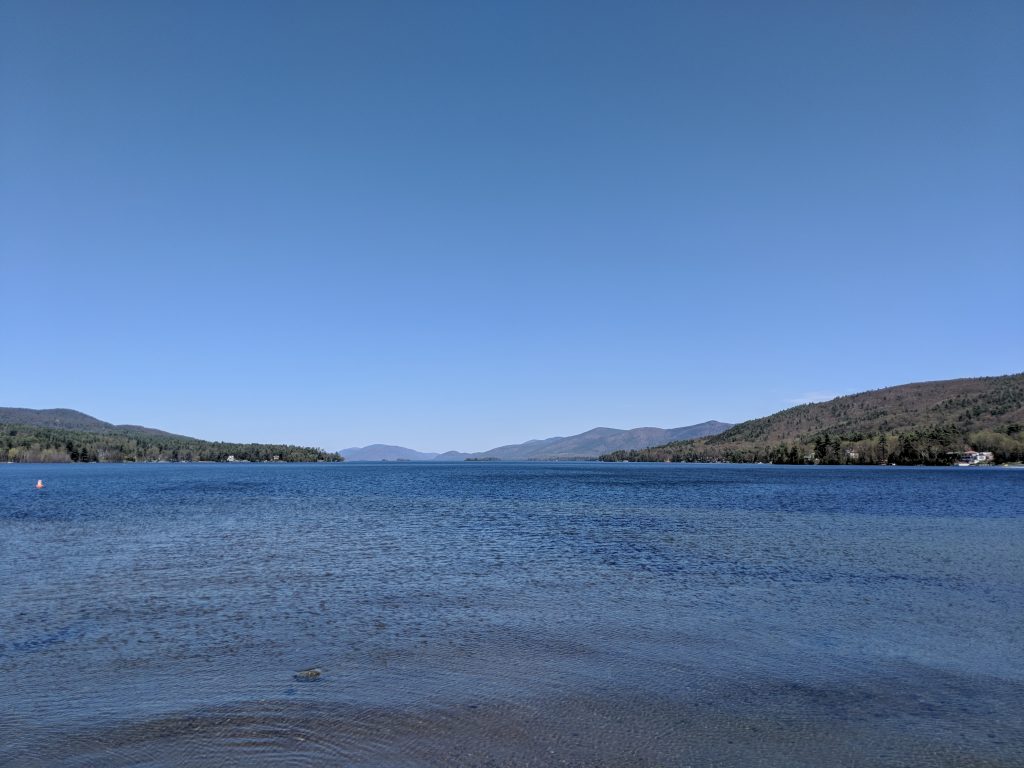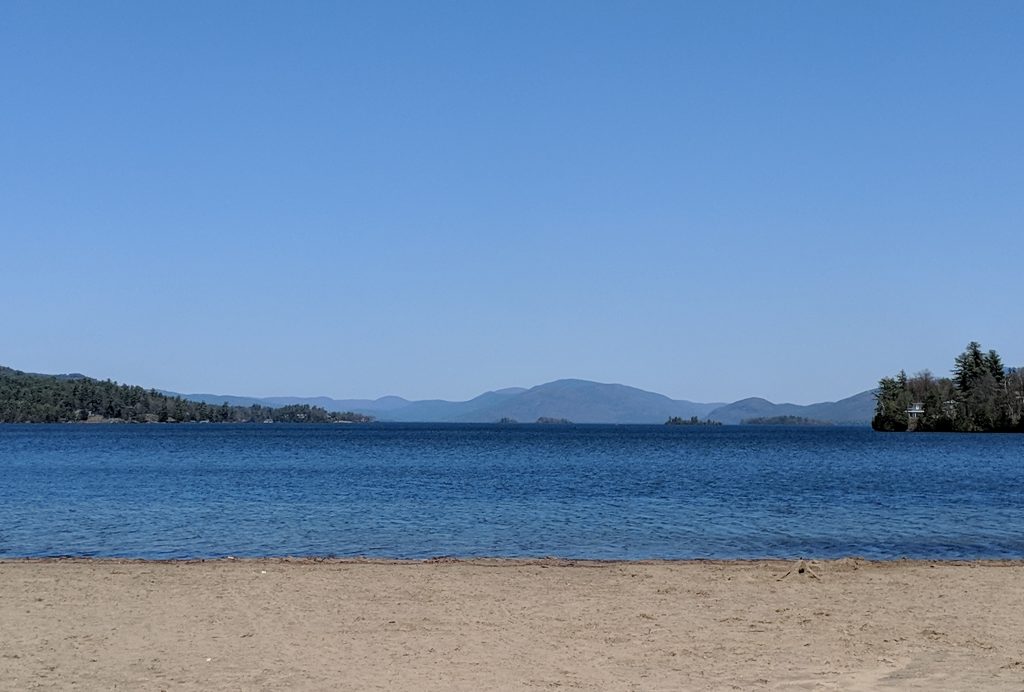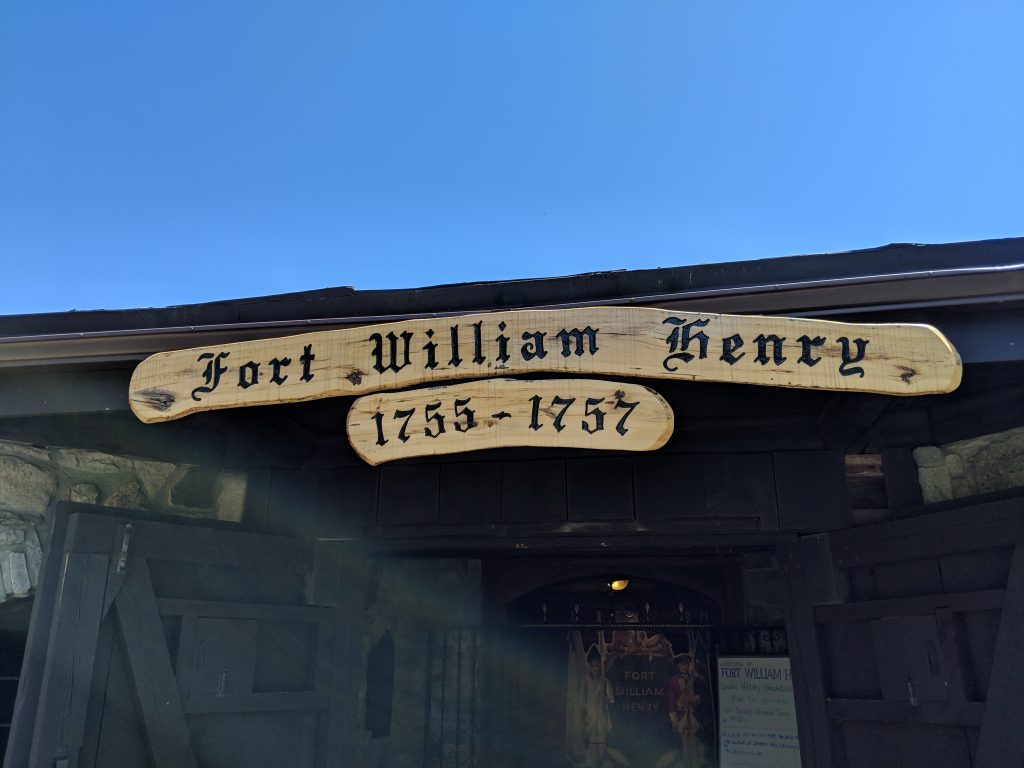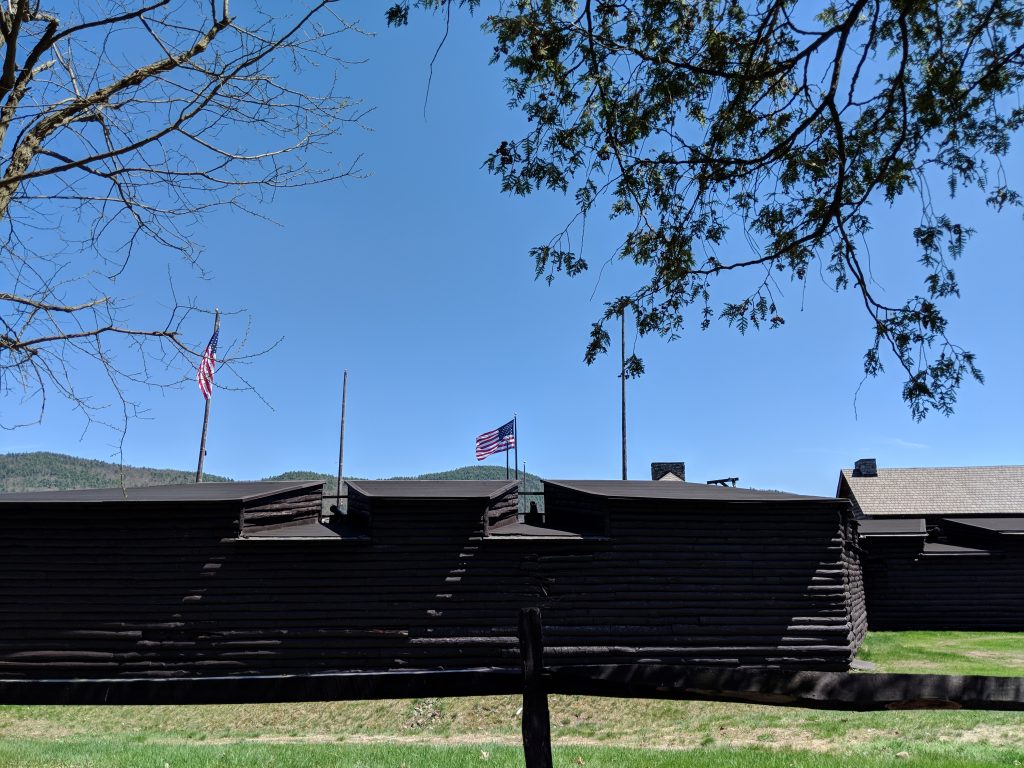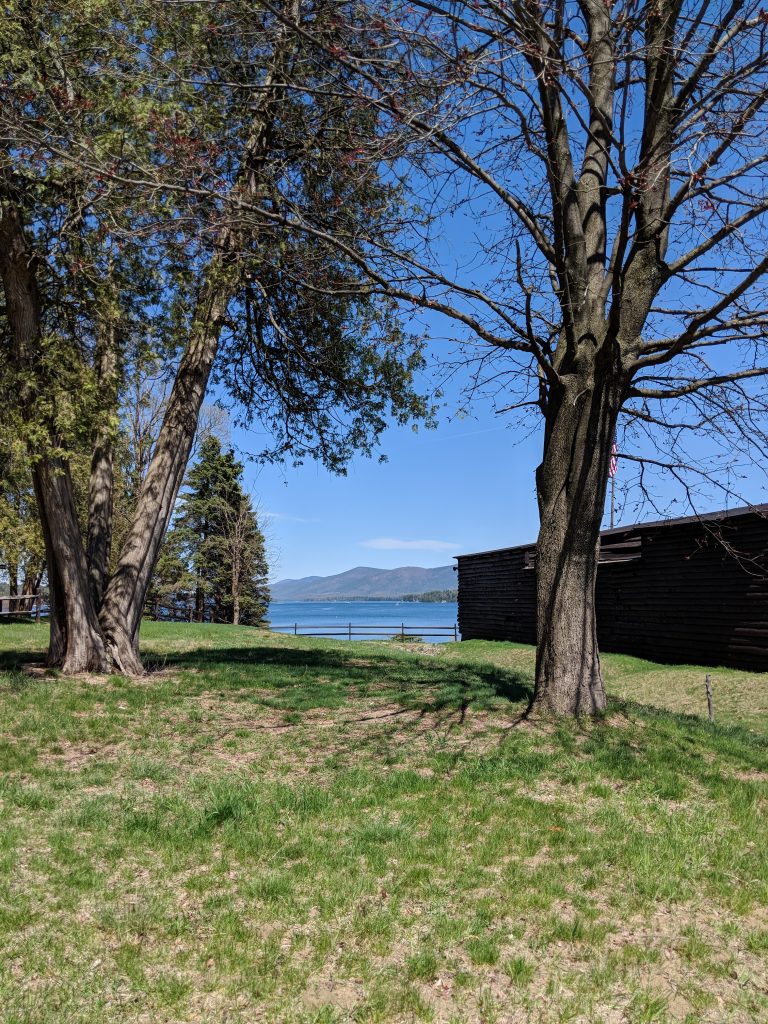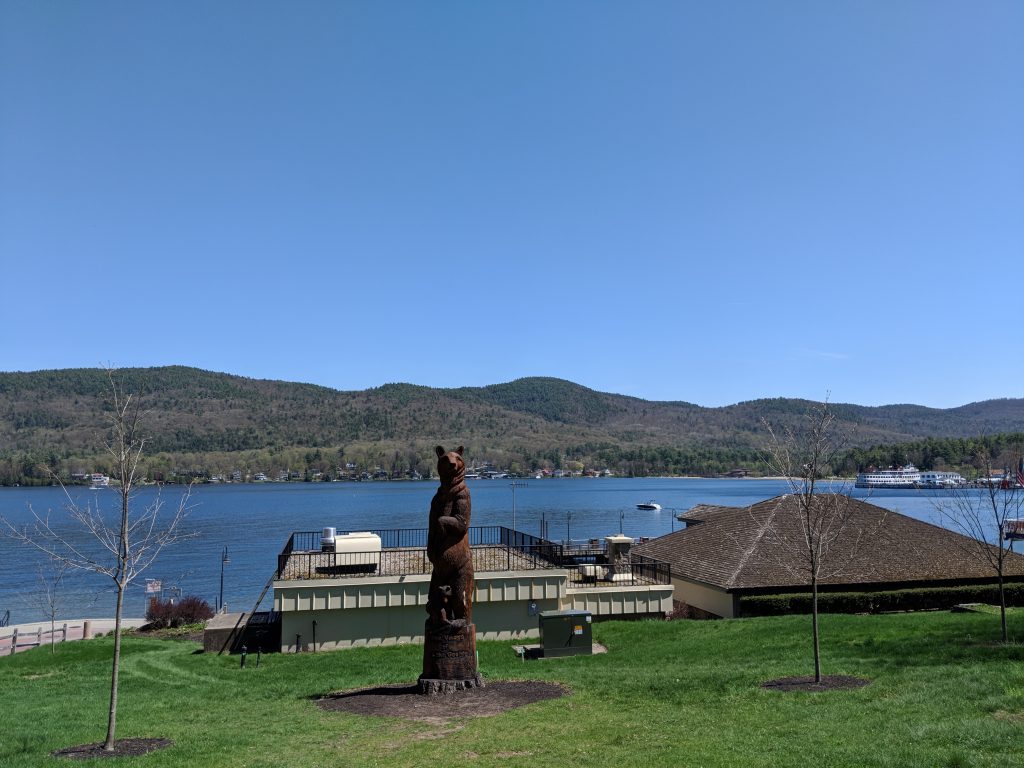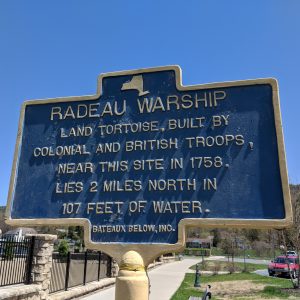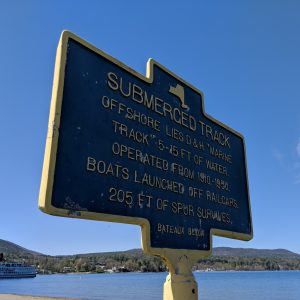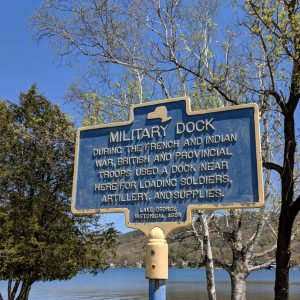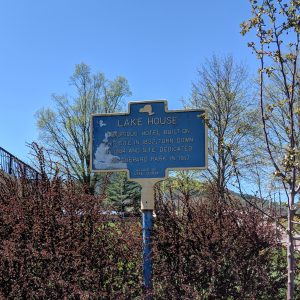Lake George: A Lakeshore of American History
Adirondack Mountains – Lake George, New York
Lake George
“It was in 1646 that Father Isaac Jogues first glimpsed the body of water he called “Lac du St. Sacrement.” The 32 mile long lake was later renamed in honor of King George II of England. Its natural beauty has cause many to term it the “Queen of American Lakes.”
Lake George played a strategic role in the French and Indian War and later in the American Revolution. Fort William Henry, Fort George and Fort Gage at the south, and Fort Ticonderoga at the north witnessed numerous skirmishes among armies led by Generals such as the British Amherst, Johnson, Abercrombie and Burgoyne; the French Montcalm and Dieskau; and the Americans Ethan Allen and Benedict Arnold.
The Lake has over 159 miles of shoreline and is studded with 179 islands. It has a maximum width of 3 miles and reaches a depth of 187 feet.” Interpretive Sign
I had been looking at mountains and parks to explore near where I live, so I could go out in nature for a few hours without too much driving. After a lingering winter (April Adventures & Explorations), the sun was shining, I was feeling good, and I wanted to go on an adventure!
Prospect Mountain. I had heard, for a fee ($10 per carload), you could drive up to the top.
My plan was to just do it. Why not?
May 8, 2018 – Following my GPS, I ended up at Evergreen Cemetery. The reason being, the road to the top of Prospect Mountain (Veteran’s Memorial Highway) was still closed.
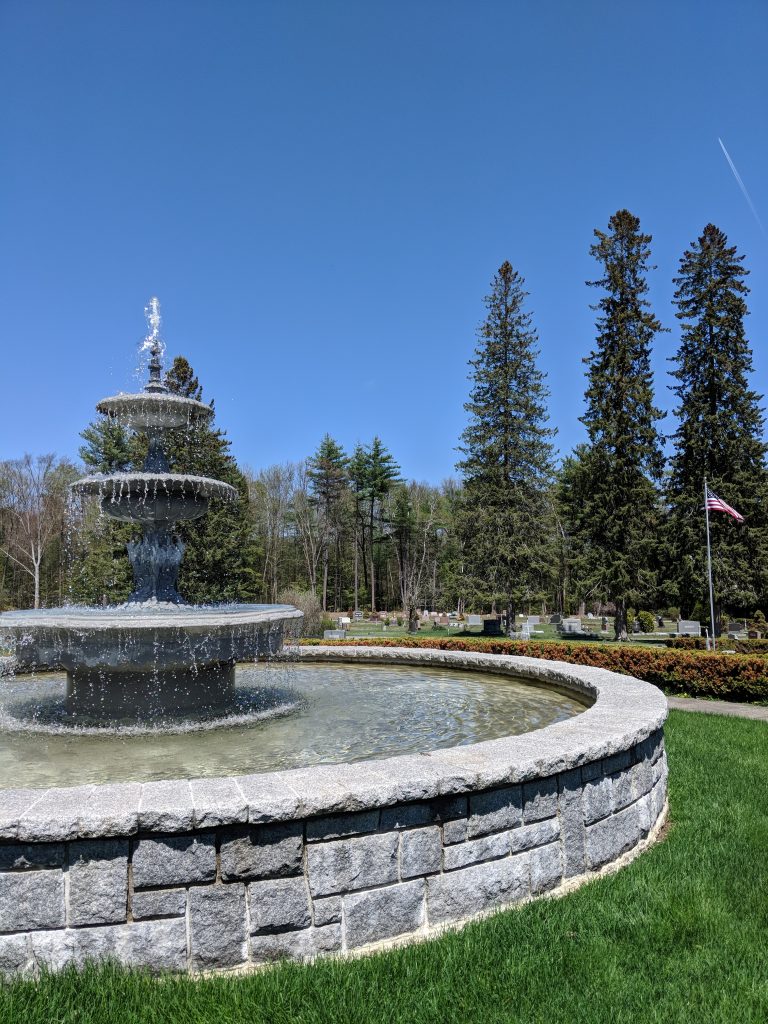
The Village of Lake George
It was still early in the afternoon, and with time on my hands, I decided to walk around the Village. The town was mostly quiet, and I aimlessly walked along the lakeshore from the Million Dollar Beach to Shepard Park.
Million Dollar Beach
Lake George Battlefield Park
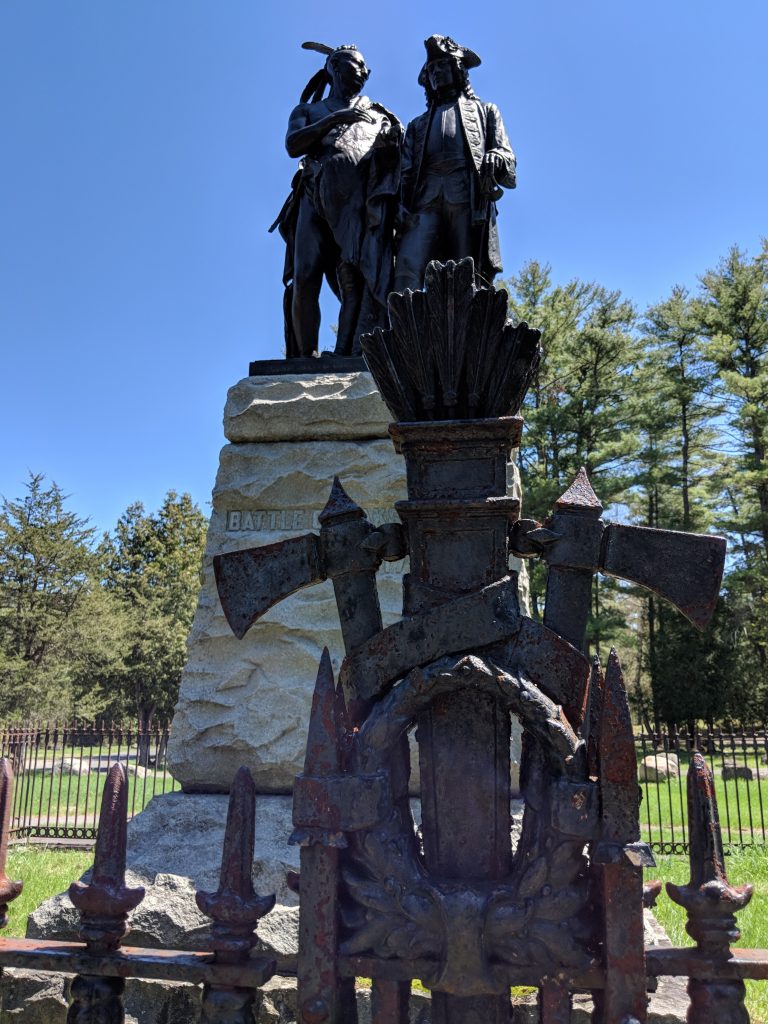
Steamboats
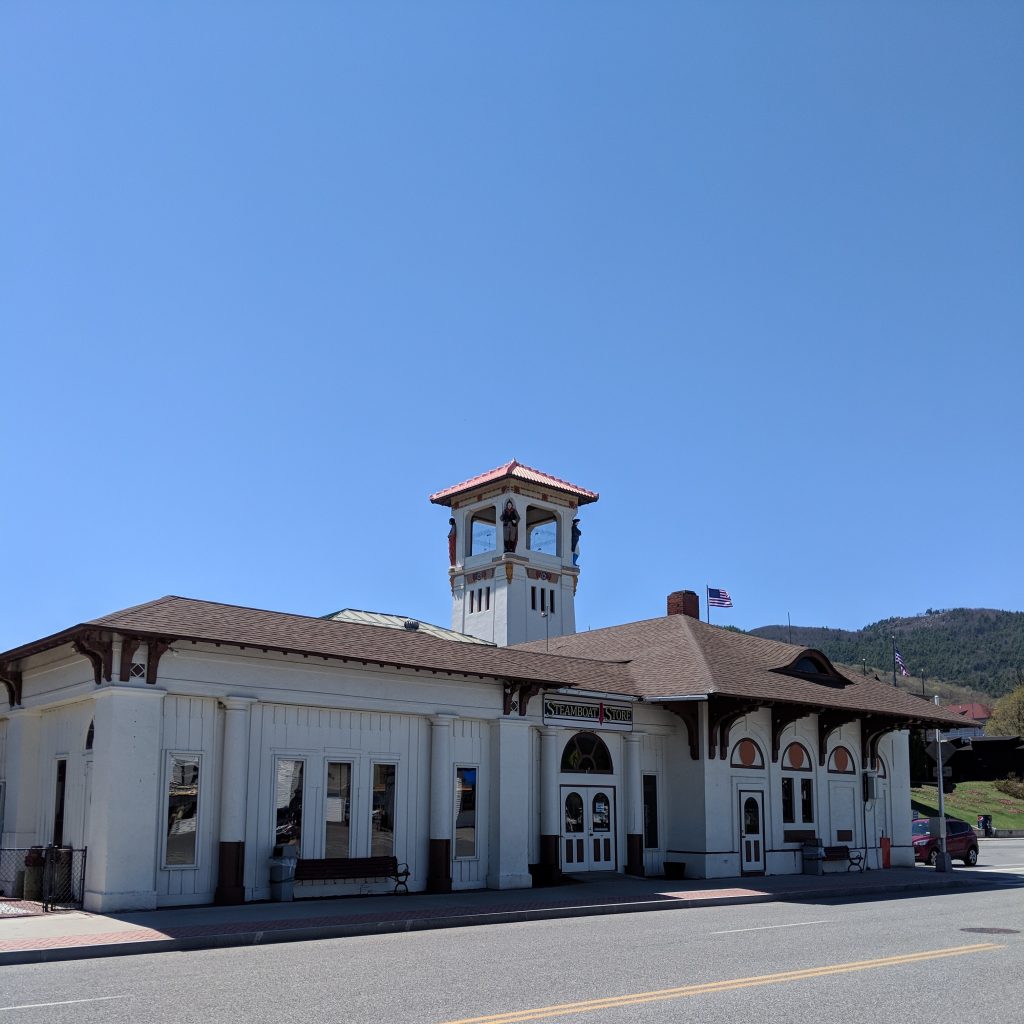
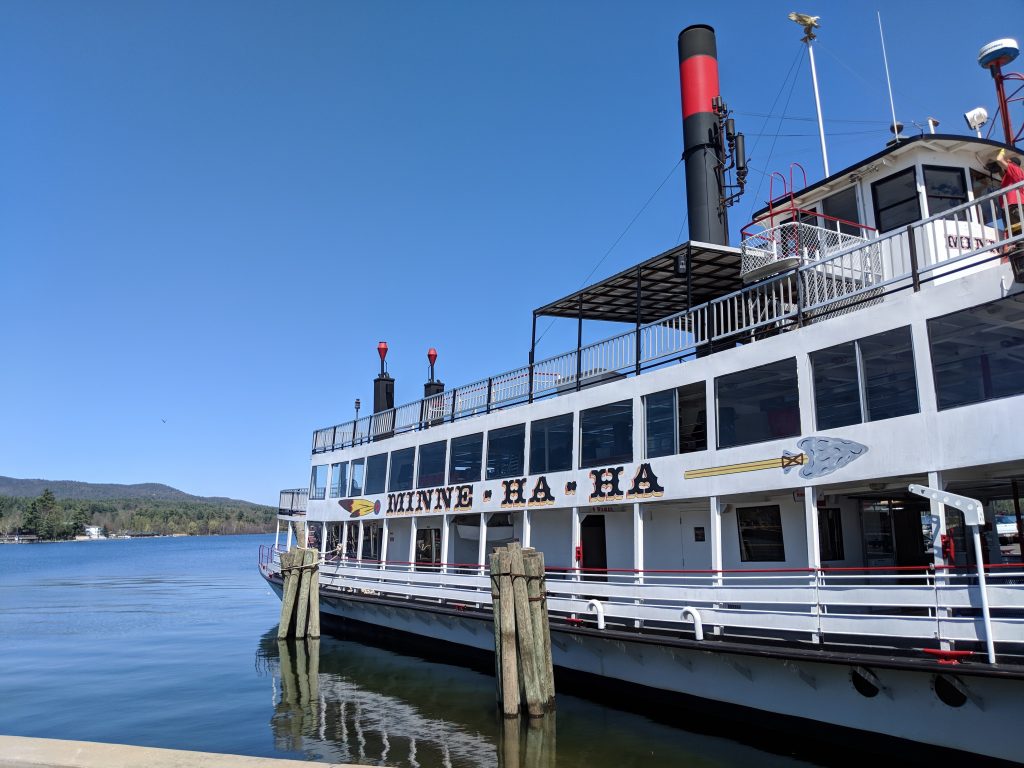
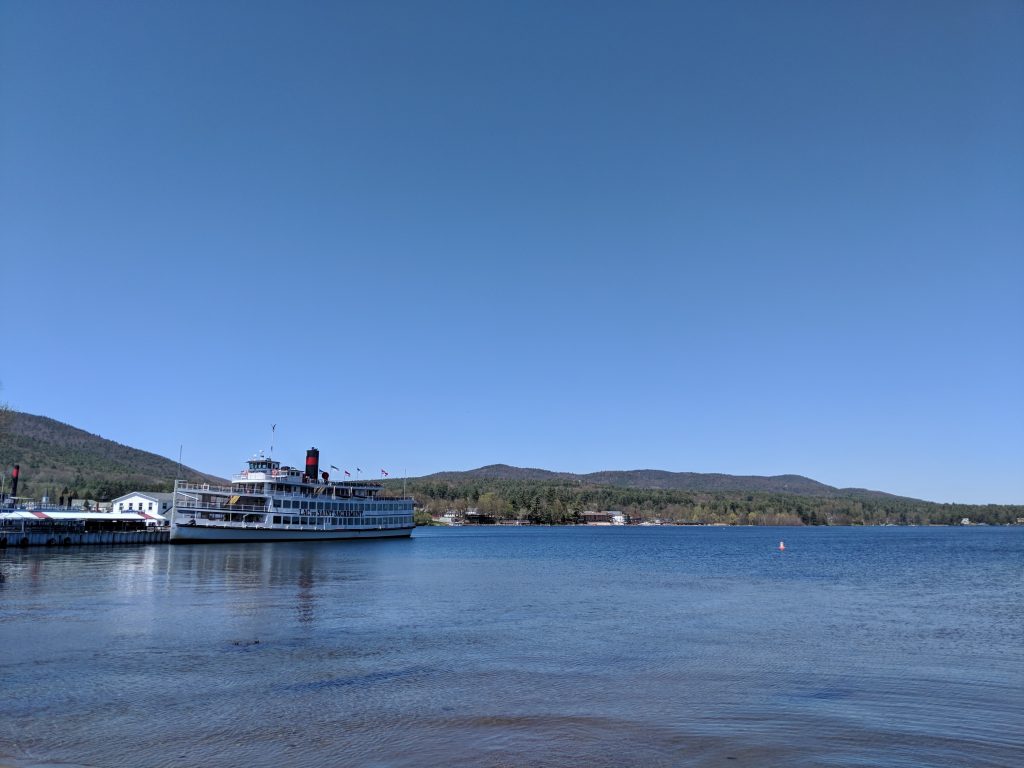
Fort William Henry
1757
“The French and Indian War (1754-1763) took place in the North American Colonies as a part of the worldwide Seven Year’s War between Britain and France. During the conflict, various Native American Nations allied with one side or the other in an effort to protect their lands and way of life. During 1755-1757, the British suffered significant losses, including the destruction of Fort William Henry. The tide turned against France in 1758 ultimately resulting in a British victory in North America. The Treaty of Paris was signed in 1763 ending the conflict. The war was expensive for Britain who began to heavily tax the Colonies. This taxation led to the American Revolution thirteen years later.” Interpretive Sign
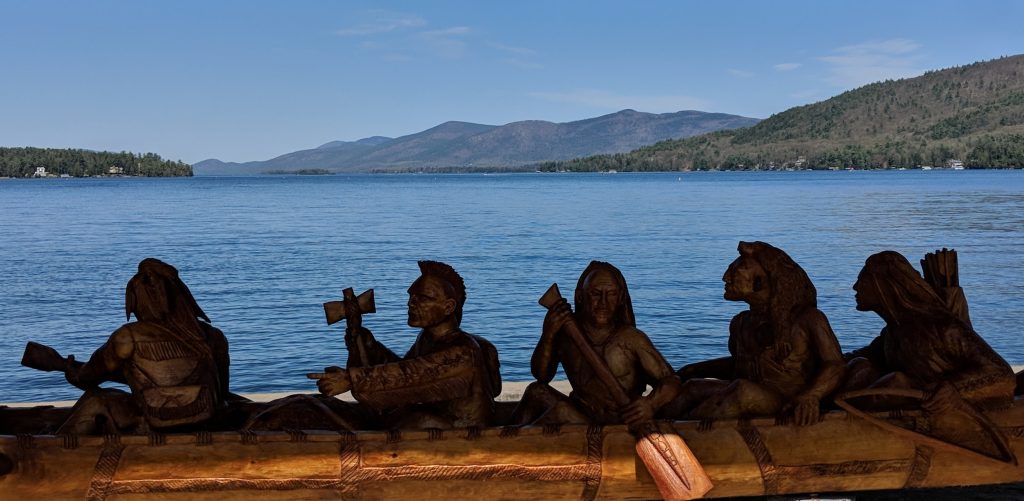
Shepard Park
Historical Markers
Kindness Rocks
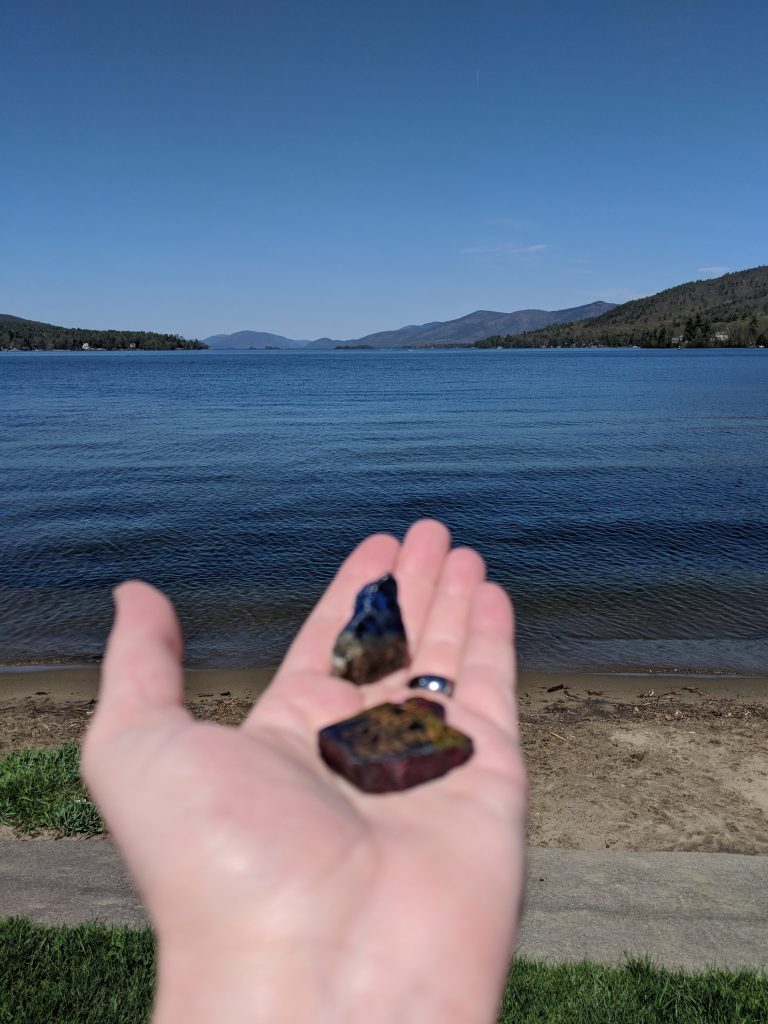
Lake George with Nathan
People travel from all over the world visit Lake George while vacationing in the Adirondacks. We live a half hour drive from the Village of Lake George and one weekend I suggested to my husband that we should go be tourists and enjoy it while we live in the area.
Nathan had to gently remind me that we have been to the Adirondack Pub & Brewery in Lake George back in February of 2014, before we moved to New York.
Of course I didn’t believe him. For some reason, I just could not place the brew pub into the town I had explored back in May.
July 7, 2018 – Nathan easily proved to me that we had definitely been to the ADK Pub & Brewery by taking me there for drinks. We shared two flights of beer, had some vegetarian appetizers as a light lunch and then walked a short distance, in the summer heat, through the grounds of Fort William Henry, down to the lakeshore. It was hot. It was crowded. We decided we would come back to Lake George the next day, perhaps get a little earlier start, and get to the summit of Prospect Mountain. I was excited that I was finally going to get there!
Prospect Mountain
Elevation: 2030 ft.

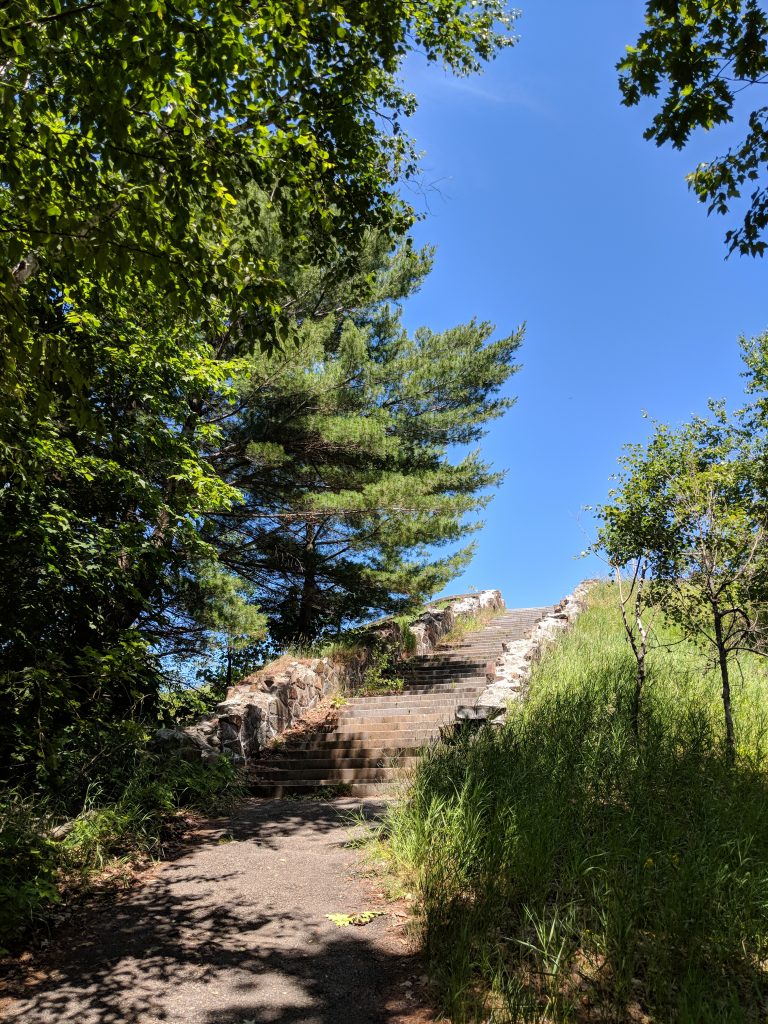
Prospect Mountain Incline Railway, 1895-1903
“Built in 1895 by the Otis Engineering and Construction Co. and the Horicon Improvement Co. at the cost of $120,000.
1.4 miles long, it rose 40 feet for every 100 feet of length – the longest and steepest in the United States at that time.
Two cars ran separately on a cable 1.25 inches in diameter. As the bullwheel turned, the car at the bottom was pulled up the mountain and the car at the summit, hooked to the other end of the cable, was lowered down the mountain on the same track. A “turnout” at the halfway point allowed the two cars to pass each other.
During the first week of operation, 5,000 people rode to the top, paying 50 cent per round trip, too high a fee for many people.
After eight summers, “the novelty wore off” and few patrons were available for trips up the mountain. The railway was shut down. The rails were torn up and sold for use as WWI scrap metal, the cars were left on the switch and the trestles and cars rotted.
The remains of the bull wheel are still viewable at the top of the mountain.”
Source: Maggie McClure, administrator, Lake George Historical Association & Museum
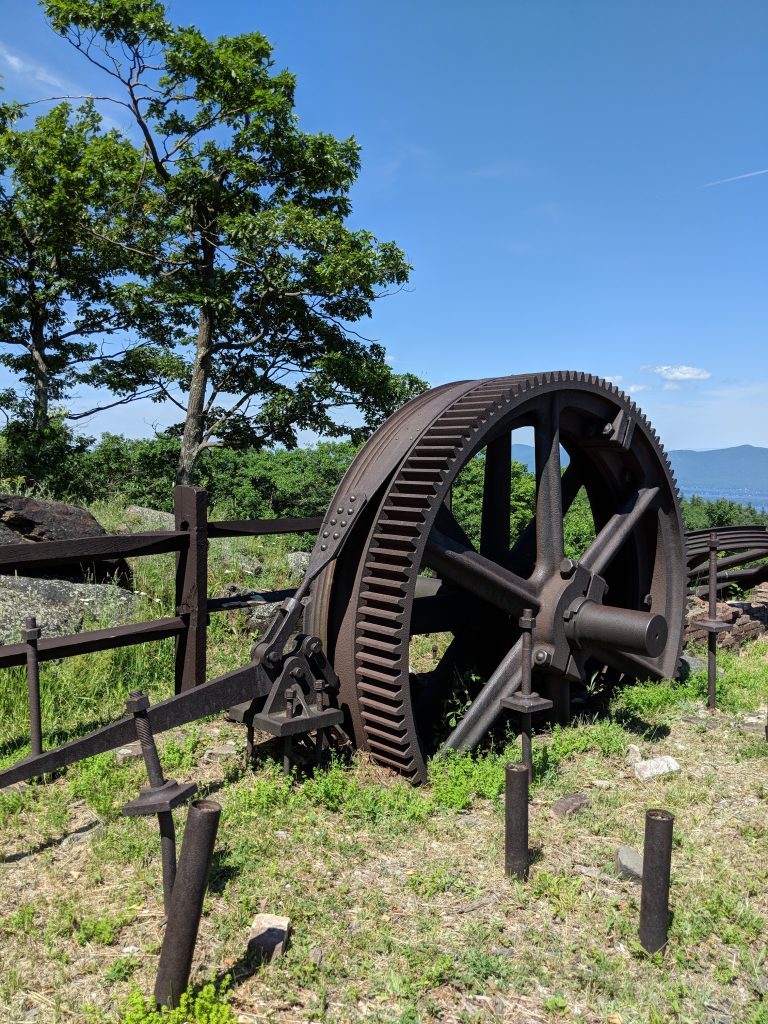

I love each of the day trips I’ve made to Lake George whether it be for hiking, learning American history, or just having a drink.
LakeGeorge.com has extensive information about the Lake George area.
All photos were taken by me (Alicen) or my husband.
